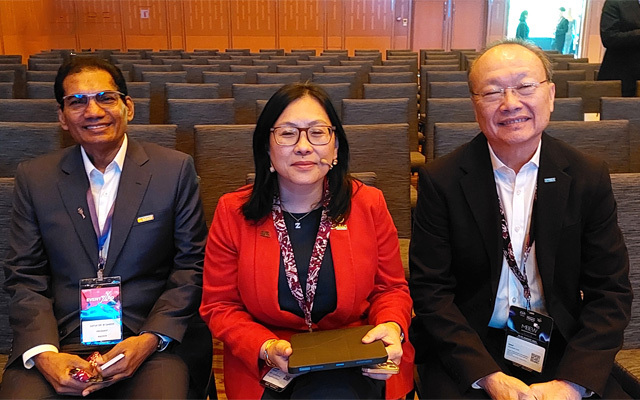Malaysia must adopt a clear, long-term strategy to strengthen its business events industry, a key driver of economic growth and nation-building.
M Gandhi, president, the Malaysian Association of Convention & Exhibition Organisers & Suppliers (MACEOS), stressed the importance of local event organisers broadening their scope beyond domestic audiences, highlighting the growth potential in nearby subregions and attracting international participants.

“Sabah has a population of just three million,” Gandhi elaborated, “but by hosting a subregional event in Kota Kinabalu with attendees from the Philippines, Brunei, and Indonesia, organisers could tap into a market of over 80 million people.”
He added: “Similarly, holding a sub-regional event in Penang could attract participants from southern Thailand and Sumatra, Indonesia. The distance from southern Thailand to Penang is even shorter than the trip to Bangkok, which increases the event’s potential reach.”
Looking ahead, Gandhi shared that MACEOS aims to help event organisers create new subregional markets over the next five years. This will involve working with stakeholders in secondary destinations like Penang, Sabah, and Sarawak to boost their visibility through branding efforts.
In light of this, Vincent Lim, president of the Asian Federation of Exhibition and Convention Associations (AFECA) announced that the Kuala Lumpur Convention Centre will host the AFECA Convention, from November 4-6, 2024. The convention will be a platform for discussions on strengthening Asia’s business events industry, and provide Malaysian event professionals the opportunity to engage in meaningful networking.
Lim also emphasised the need for long-term planning to grow Malaysia’s B2B business events sector by investing in larger convention and exhibition venues, especially in Kuala Lumpur.
He stressed that leaders should start thinking of building larger venues with capacities between 180,000 to 200,000m2 now, as these projects can take five to 10 years to complete.
Lim pointed out that without enough space for international events, Malaysia might miss out on opportunities. “Homegrown exhibitions could also scale more effectively if there were adequate exhibition spaces,” he added.
Both Gandhi and Lim were speakers at the Malaysia Business Events Week’s panel session entitled Advancing Business Events in the Next Frontier, with Noredah Othman, CEO of Sabah Convention Bureau as the moderator.





















